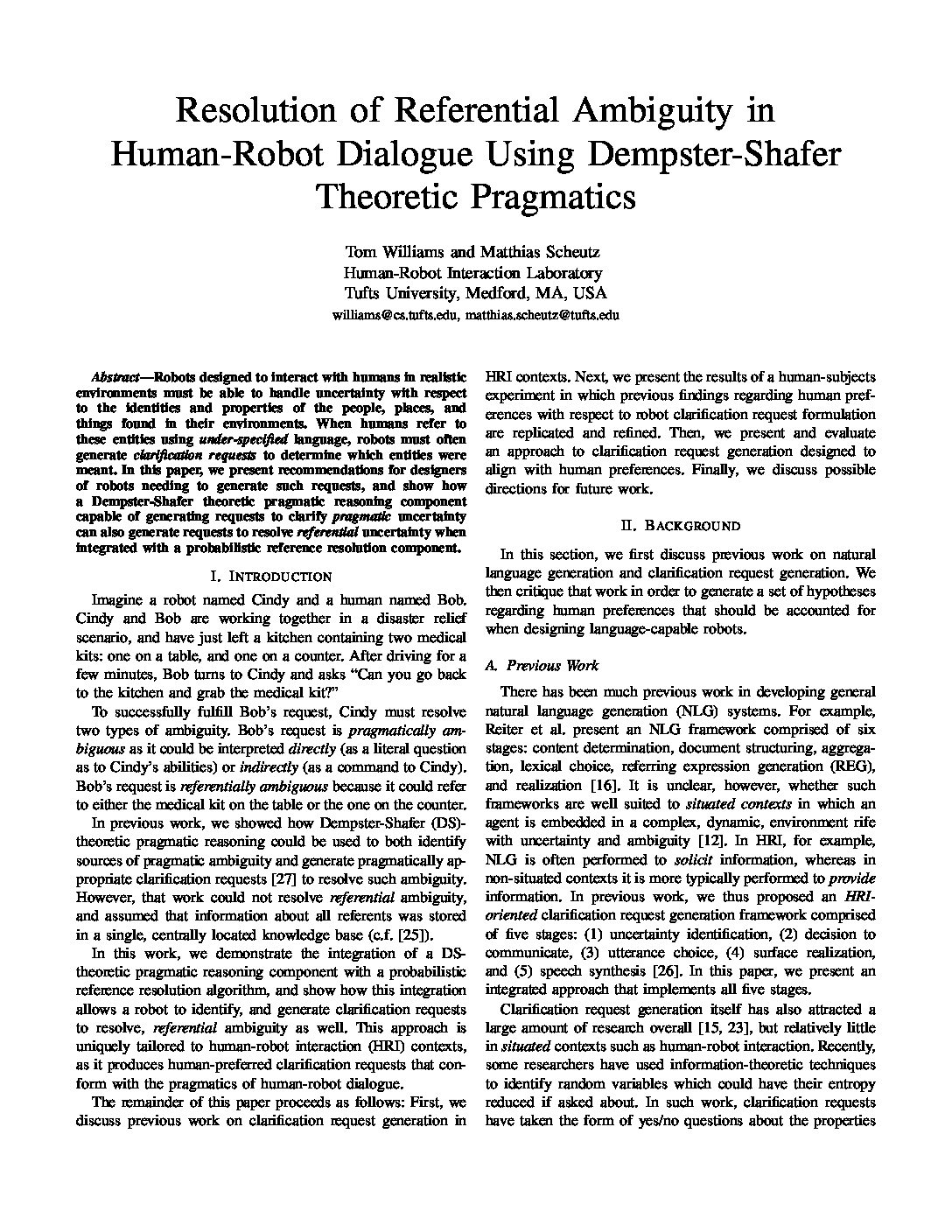Authors
Tom Williams and Matthias Scheutz
Venue
Robotics: Science and Systems
Publication Year
2017
Robots designed to interact with humans in realistic environments must be able to handle uncertainty with respect to the identities and properties of the people, places, and things found in their environments. When humans refer to these entities using under-specified language, robots must often generate clarification requests to determine which entities were meant. In this paper, we present recommendations for designers of robots needing to generate such requests, and show how a Dempster-Shafer theoretic pragmatic reasoning component capable of generating requests to clarify pragmatic uncertainty can also generate requests to resolve referential uncertainty when integrated with a probabilistic reference resolution component.
